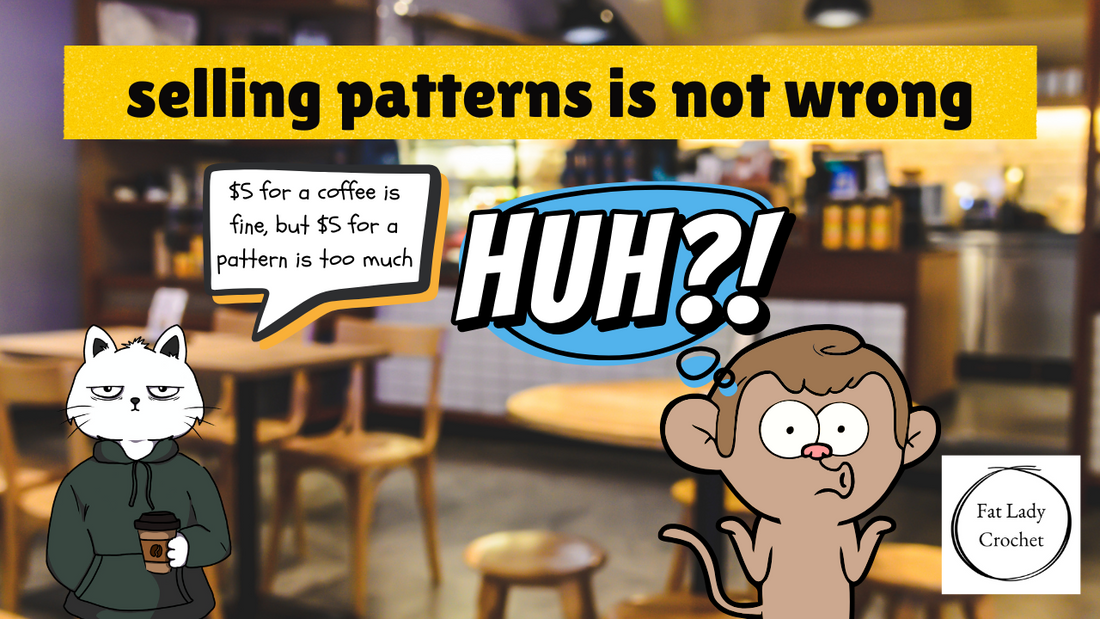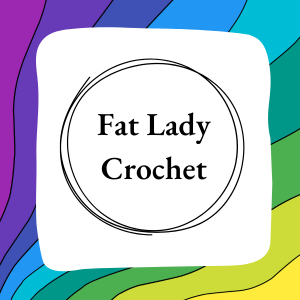
Selling Crochet Patterns Isn't Gatekeeping—It's Fair Compensation
Trish HoskinShare
One of the most frustrating arguments floating around in the crochet community is the idea that designers should only give away their patterns for free, and that selling them is somehow "gatekeeping." Let’s set the record straight: selling patterns is not gatekeeping. It’s fair compensation for labor, skill, and creativity.
The Time and Skill Behind a Pattern
When someone creates a crochet pattern, they aren’t just stitching something up and writing down what they did in a few minutes. A well-written pattern takes hours, sometimes weeks, to design, test, edit, and format. A designer:
-
Spends years honing their skills to create original and functional designs.
-
Writes out instructions that are clear, concise, and easy to follow.
-
Often hires testers to ensure accuracy and accessibility for different skill levels.
-
Creates charts, illustrations, or videos to help customers.
-
Provides customer support for those who purchase their patterns.
Expecting all of this work to be given away for free is like expecting a chef to hand out recipes without compensation or an artist to gift away every painting. It devalues the craft and the effort that goes into it.
Free vs. Paid Patterns: A Designer’s Choice
There’s nothing wrong with offering free patterns—many designers choose to do so as a marketing strategy or simply as a gift to the community. But expecting every pattern to be free is unrealistic and unfair. Designers have bills to pay, just like everyone else.
Many free patterns exist because they’re supported by ads, sponsorships, or other monetization strategies. But that’s not feasible for every designer, and some don’t want to fill their work with ads just to justify giving it away for nothing.
Selling Patterns Isn’t Gatekeeping—It’s Business
Gatekeeping means deliberately keeping people out of something. Selling a pattern does not prevent anyone from crocheting—it simply means that if you want to use a particular design, you need to pay for the work that went into creating it.
If someone can’t afford a pattern, there are thousands of free options available. Libraries exist. Community groups share resources. But demanding that every pattern be free because someone can’t or won’t pay? That’s entitlement, not an argument for accessibility.
Respect for Designers = Respect for Crochet as an Industry
Crochet is often undervalued because people see it as a hobby rather than a skill. But it is a skill, and those who master it deserve compensation when they choose to sell their work. No one questions paying for knitting or sewing patterns, so why should crochet be different?
The more we insist that crochet designers should give away their work for free, the harder we make it for the craft to be taken seriously. Supporting designers by purchasing patterns helps keep crochet alive as a respected art and industry.
Final Thoughts
If you want to support crochet designers, acknowledge the work they put into their patterns. If you can’t or don’t want to buy patterns, that’s fine—but don’t demand that others give away their labor for free. Selling patterns isn’t gatekeeping. It’s valuing the time, effort, and expertise that go into creating something worth making.
Happy crocheting, friends!

1 comment
Could you possibly come up with a pattern for the guy with the yellow hat that goes with the curious George? I would be glad to test it for you. Also if you need a tester, but I have tried to find one of these everywhere and your patterns are so awesome. I bet you would come up with a good one.